This study analyzes the extent to which the India program is meeting the World Bank’s objective of mainstreaming participatory approaches in project preparation and design. It includes ten projects in which participation was an overall project objective. These projects provided “good practice” lessons from a variety of social and natural resource management sectors.
“Microwave Techniques: Transmission Lines” has been added to your cart. View cart
Participation in Project Preparation: Lessons from World Bank-Assisted Projects in India (World Bank Discussion Papers)
KShs 1,000.00
This study analyzes the extent to which the India program is meeting the World Bank’s objective of mainstreaming participatory approaches in project preparation and design. It includes ten projects in which participation was an overall project objective. These projects provided “good practice” lessons from a variety of social and natural resource management sectors.
1 in stock
Related products
-
And the Mountains Echoed Paperback
KShs 1,295.00From the no. 1 bestselling author of The Kite Runner and A Thousand Splendid Suns, the book that readers everywhere have been waiting for: his first novel in six years. So, then. You want a story and I will tell you one… Afghanistan, 1952. Abdullah and his sister Pad live with their father and step-mother in the small village of Shadbagh. Their father, Saboor, is constantly in search of work and they struggle together through poverty and brutal winters. To Adbullah, Pad, as beautiful and sweet-natured as the fairy for which she was named, is everything. More like a parent than a brother, Abdullah will do anything for her, even trading his only pair of shoes for a feather for her treasured collection. Each night they sleep together in their cot, their skulls touching, their limbs tangled. One day the siblings journey across the desert to Kabul with their father. Pad and Abdullah have no sense of the fate that awaits them there, for the event which unfolds will tear their lives apart; sometimes a finger must be cut to save the hand. Crossing generations and continents, moving from Kabul, to Paris, to San Francisco, to the Greek island of Tinos, with profound wisdom, depth, insight and compassion, Khaled Hosseini writes about the bonds that define us and shape our lives, the ways that we help our loved ones in need, how the choices we make resonate through history, and how we are often surprised by the people closest to us.
-
The Ethnographic Imagination
KShs 1,200.00In this book Paul Willis, a renowned sociologist and ethnographer, aims to renew and develop the ethnographic craft across the disciplines. Drawing from numerous examples of his own past and current work, he shows that ethnographic practice and the ethnographic imagination are vital to understanding the creativity and irreducibility of experience in all aspects of social and cultural practice.
Willis argues that ethnography plays a vital role in constituting ‘sensuousness’ in textual, methodological, and substantive ways, but it can do this only through the deployment of an associated theoretical imagination which cannot be found simply there in the field. He presents a bold and incisive ethnographically oriented view of the world, emphasizing the need for a deep-running social but also aesthetic sensibility. In doing so he brings new insights to the understanding of human action and its dialectical relation to social and symbolic structures. He makes original contributions to the understanding of the contemporary human uses of objects, artefacts and communicative forms, presenting a new analysis of commodity fetishism as central to consumption and to the wider social relations of contemporary societies. He also utilizes his perspective to further the understanding of the contemporary crisis in masculinity and to cast new light on various lived everyday cultures – at school, on the dole, on the street, in the Mall, in front of TV, in the dance club.
This book will be essential reading for all those involved in planning or contemplating ethnographic fieldwork and for those interested in the contributions it can make to the social sciences and humanities.
-
El Aserradero Lugubre / The Miserable Mill (Series Of Unfortunate Events)
KShs 150.00El Aserradero Lugubre / The Miserable Mill (Series Of Unfortunate Events)
-
Peace Kills – Softcover800
KShs 500.00In this latest collection of adventures, P. J. O’Rourke casts his mordant eye on America’s recent foreign policy forays. He first travels to Kosovo where he meets KLA veterans, Albanian refugees and peacekeepers, and confronts the paradox of ‘the war that war-haters love to love’. He visits Egypt, Israel and Kuwait, where he witnesses citizens enjoying their newfound freedoms – namely, to shop, to eat and to sit around a lot. Following 11 September, O’Rourke examines the far-reaching changes in the US, from the absurd hassles of airport security to the dangers of anthrax. In Iraq, he witnesses both the beginning and the end of Operation Iraqi Freedom and takes a tour of a presidential palace, concluding that the war was justified for at least one reason: criminal interior decorating.
Peace Kills is an eye-opening look at a world much changed since O’Rourke wrote his bestselling Give War A Chance – a book in which he presciently declared that the most troubling aspect of war is sometimes peace itself.
-
Constitution of Kenya
KShs 490.00Other books in the series:
- Civil Procedure Statutes
- Commercial Law Statutes
- Criminal Law Statues
- Family Law Statutes
- Labour Law Statutes
- Legal Profession
- Penal Code
- Property Law Statutes
-
Psychology: The Science of Mind and Behaviour 4e
KShs 8,960.00Psychology: The Science of Mind and Behaviour fourth edition has been fully updated to reflect new developments in the field. Its celebrated pedagogical design has been reinforced with key research, issues and offers an exciting and engaging introduction to the study of psychology.The scientific approach brings together international research, practical application and the levels of analysis framework to encourage critical thinking about psychology and its impact on our daily lives. Key features:•Brand new! Psychology at Work interviews from Psychologists in the field provide a glimpse of their day-to-day work and the career path they have taken since completing a psychology degree. •Research Close Ups reflect new research and literature as well as brand new critical thinking questions to increase analysis and evaluation of the findings. •Core subject updates such as DSM-5 for psychological disorders. •Current issues and hot topics such as, social media, prosociality, critical perspectives of positive psychology and coverage of the replication crisis to prompt debates on the questions facing psychologists today.•Focus Arrow Boxes encourage critical analysis and application of the text.
-
I Have Seen the Promised Land: A Utopian Novella
KShs 395.00This book, a utopian novella set in the year 2026, is part of a trilogy along with The History of the Culture of War and World Peace through the Town Hall: A Strategy for the Global Movement for a Culture of Peace. Together they put forward a comprehensive and feasible plan to achieve world peace. They are based on the author’s responsibility for the United Nations International Year for the Culture of Peace (2000), the Manifesto 2000 signed by 75 million people, and the United Nations Declaration and Programme of Action on a Culture of Peace. This novella foresees the coming collapse of the global economy and nation states as an opportunity to refound the United Nations on the basis of those who understand the need for a culture of peace: individuals, civil society organizations and local governments. It provides an imaginative and personalized account of how the world has come to a culture of peace and explores the various contradictions involved.
-
Americanah: Chimamanda Ngozi Adichie
KShs 1,695.00SHORTLISTED FOR THE BAILEY S WOMEN S PRIZE FOR FICTION 2014.
From the award-winning author of Half of a Yellow Sun, a powerful story of love, race and identity.
As teenagers in Lagos, Ifemelu and Obinze fall in love. Their Nigeria is under military dictatorship, and people are fleeing the country if they can. The self-assured Ifemelu departs for America. There she suffers defeats and triumphs, finds and loses relationships, all the while feeling the weight of something she never thought of back home: race. Obinze had hoped to join her, but post-9/11 America will not let him in, and he plunges into a dangerous, undocumented life in London.
Thirteen years later, Obinze is a wealthy man in a newly democratic Nigeria, while Ifemelu has achieved success as a blogger. But after so long apart and so many changes, will they find the courage to meet again, face to face?
Fearless, gripping, spanning three continents and numerous lives, the National Book Critics Circle Award-winning Americanah is a richly told story of love and expectation set in today s globalized world.

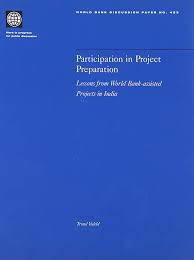
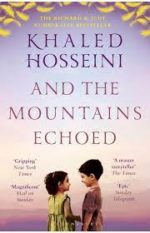
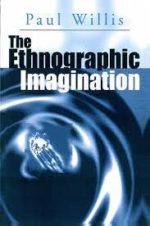
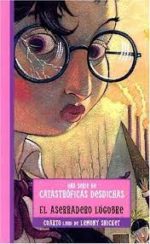
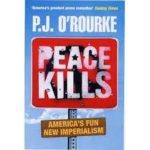

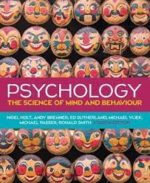


Be the first to review “Participation in Project Preparation: Lessons from World Bank-Assisted Projects in India (World Bank Discussion Papers)”